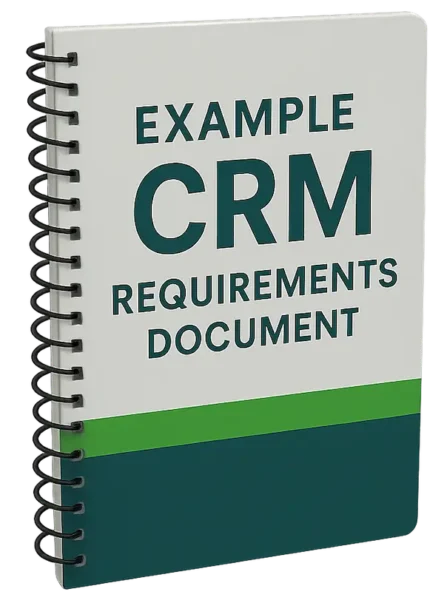 A recent IDG study predicts that enterprises will spend about $8M on big data in 2014, while 70% of enterprise organizations have already or are planning to deploy big data related initiatives.
A recent IDG study predicts that enterprises will spend about $8M on big data in 2014, while 70% of enterprise organizations have already or are planning to deploy big data related initiatives.
The big promise of big data is a move toward data-driven decision making. By integrating big data into a CRM solution, companies can predict customer behavior, improve customer service, and calculate ROI more accurately.
While there are an abundance of possibilities made available using big data, there are also several obstacles. These include incomplete data, scale, complexity and privacy concerns–currently leaving a gap between big data’s potential and its realization.
Let’s take a closer look at what it is, how it’s used, and how big data relates to CRM.
What Is Big Data?
Big data is a sort of catchall phrase that can be used to describe a massive volume of fast moving data which exceeds the current processing capacity of most enterprises. In general, standard tools and procedures are not designed to store and analyze these massive datasets.
When used by vendors, big data can also refer to the emerging technology used to store and process the large amounts of data. The data can be transactional (e.g. social media) or analytic (e.g. clicks). It can also be structured or unstructured and include text, audio, video and images.
How Are Businesses Using It?
Big data can be divided into 5 main categories:
- Social media – used to understand consumer sentiment.
- Server logs – used to deliver responsive IT.
- Web clickstream – used to gain granular customer segmentation.
- Machine/sensor – enabling predictive analytics.
- Geolocation – optimizing global logistics operations.
How Big Data Creates Big Value:
- Using big data, organizations can collect more accurate and detailed performance information on everything from product inventories to customer sentiment, and therefore expose variability and boost performance.
- Leading companies are using data collection and analysis to make better management decisions for low frequency forecasting and high frequency “now casting” to adjust their business decisions in real time.
- Big data allows narrower customer segmentation, resulting in more precisely tailored products and services.
- Big data can be used to improve upon the development of future products and services.
How Is Big Data Relevant To CRM?
Big data has the potential to change the way companies manage customer relationships by offering businesses powerful new tools, capable of identifying sales opportunities and analyzing customers’ responses to products, by combining internal data with comments made on social networks.
Using big data and CRM analytics to find associations, recognize patterns and identify trends that allow a company to shape customer experiences for increased engagement and greater profits is a great way to bring the perspective of the customer into business decisions.
5 reasons to integrate big data into your CRM solution:
- Improved customer analysis – The analysis of all customer touch points, including social media, email, internet and call center, allow CRM and big data to segment customers according to actions. Customer trends can be mined from big data and used to predict needs, directing product development and promotional efforts.
- Better picture of customer-facing operations – Big data will provide businesses with sales, marketing and customer service performance metrics. With big data, organizations can predict and determine ROI and use it to endorse additional CRM investment.
- Better decision making– Once the value or lack thereof in customer-facing operations is made clear, businesses can make course corrections and better decisions going forward.
- Predictive Modeling – Using big data, businesses gain the ability to predict how customers will respond in the future, based on demographics and behavioral history.
- Benchmarking – A powerful component of big data is the ability to implement comprehensive benchmarking over time, enabling organizations to define vital indicators such as customer sentiment, retention and cost vs. revenue per service call. Once the areas that need improvement are emphasized, companies have the tools necessary to rise above industry standards.
The Bottom Line
CRM’s top players like Microsoft and Oracle have begun to invest in big data, and salesforce.com has already made a significant acquisition in the big data analytics space. In time, all of the possibilities of big data can become realities for businesses.
Through enhanced analysis of the massive volumes of data quickly becoming available, there is the potential for improving the bottom line for many enterprises.
Big data could represent a significant step toward providing your organization with increased call center productivity, finely targeted marketing promotions and an increase in profits, all while optimizing your investment in a CRM solution.



